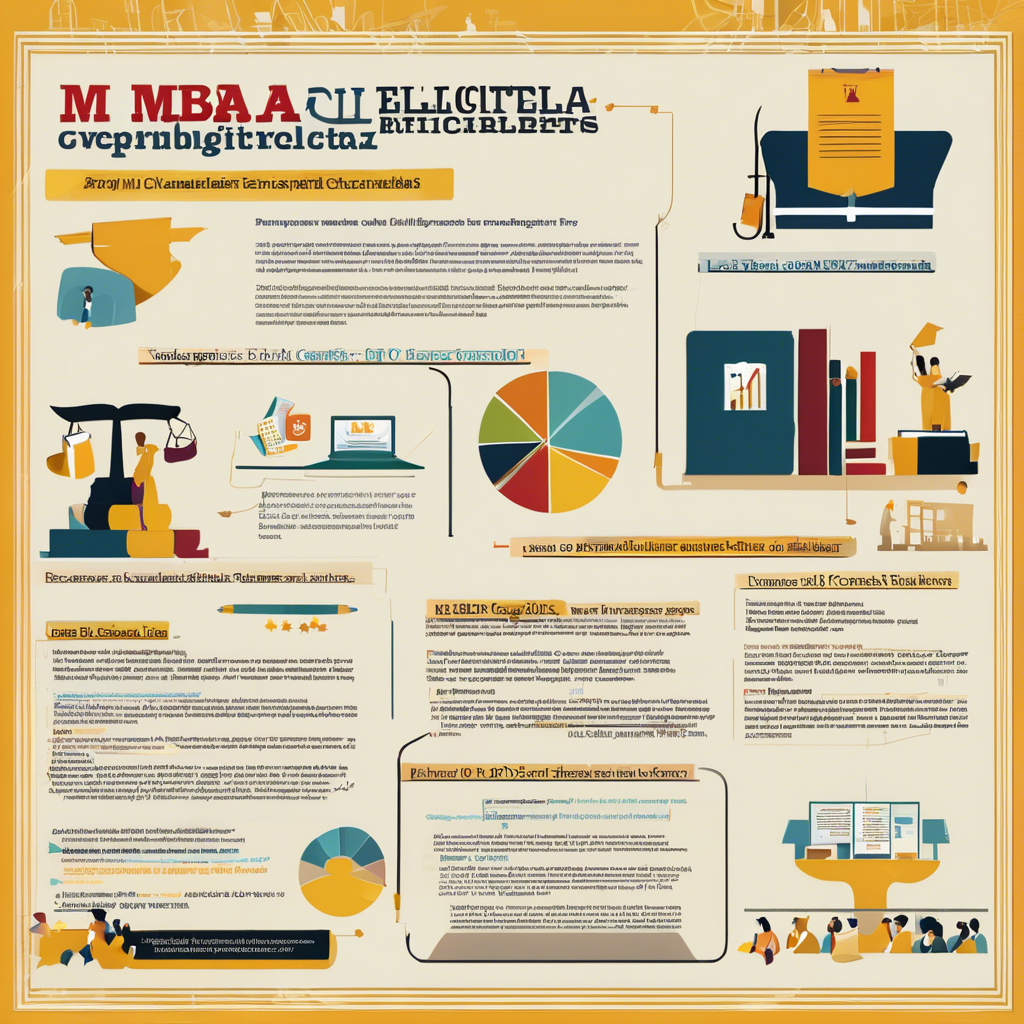MBA Eligibility Criteria:
Pursuing a Master of Business Administration (MBA) is a significant step in advancing one’s career in the business world. However, before diving into this postgraduate program, it is essential to understand the eligibility criteria required by most business schools. Each institution may have specific requirements, but there are common standards that applicants need to meet. Let’s delve into the key eligibility criteria for pursuing an MBA.
1. Educational Qualifications:
Applicants must typically hold a bachelor’s degree from a recognized institution to be eligible for an MBA program. The degree can be in any discipline, although some schools may prefer candidates with a background in business or related fields.
2. Work Experience:
Many MBA programs require applicants to have relevant work experience ranging from 2 to 5 years. This criterion ensures that candidates have practical exposure to the business environment, which enhances the learning experience in the program.
3. Entrance Exams:
Most business schools require applicants to submit scores from standardized tests such as the GMAT (Graduate Management Admission Test) or GRE (Graduate Record Examination). These exams assess the applicant’s readiness for graduate-level studies.
4. English Proficiency:
For international applicants or non-native English speakers, demonstrating proficiency in the English language through tests like TOEFL or IELTS is often mandatory. This ensures that students can effectively participate in the program’s coursework conducted in English.
5. Letters of Recommendation:
Applicants are usually required to submit letters of recommendation from academic or professional references who can attest to their capabilities and potential for success in an MBA program.
6. Statement of Purpose:
A well-crafted statement of purpose (SOP) outlining the applicant’s career goals, aspirations, and reasons for pursuing an MBA is a common requirement. Admissions committees assess the alignment between the candidate’s objectives and the program’s offerings.
7. Resume/CV:
Applicants need to provide a detailed resume or curriculum vitae (CV) highlighting their academic qualifications, work experience, skills, and achievements. This document gives insight into the candidate’s professional background.
8. Interviews:
Some business schools conduct interviews as part of the admission process to assess the applicant’s communication skills, motivation, and fit for the program. Preparation for these interviews is crucial for success.
9. Academic Transcripts:
Transcripts from previous academic institutions are essential for evaluating the applicant’s academic performance and consistency. Maintaining a competitive GPA is advantageous during the selection process.
10. Diversity and Inclusivity:
Business schools value diversity in their student body, so applicants from varied backgrounds, cultures, and industries are encouraged to apply. This enriches the learning environment and promotes a global perspective.
11. Extracurricular Activities:
Involvement in extracurricular activities, community service, leadership roles, or professional certifications can strengthen an applicant’s profile and demonstrate their well-rounded personality.
12. Financial Documentation:
Applicants may need to provide proof of financial stability to cover tuition fees, living expenses, and other costs associated with pursuing an MBA. Scholarships, loans, or sponsorships can also aid in funding the education.
13. Research and Networking:
Prospective students are advised to research different MBA programs, attend information sessions, and connect with alumni or current students to gather insights and make informed decisions about their application choices.
14. Deadlines and Admissions Process:
Understanding the application deadlines, admission requirements, and procedures of each business school is crucial for a successful application. Early planning and meticulous preparation can enhance the chances of acceptance.
15. Continuous Learning and Growth:
Embarking on an MBA journey signifies a commitment to continuous learning and personal growth. Candidates should approach the application process with enthusiasm, determination, and a clear vision of their future career path.
In conclusion, meeting the eligibility criteria for an MBA program requires thorough preparation, dedication, and a strategic approach to the application process. By fulfilling these requirements and showcasing their unique qualities, candidates can position themselves as strong contenders for admission to esteemed business schools. The pursuit of an MBA is not just about meeting criteria but also about embracing a transformative educational experience that can shape a successful career in the dynamic world of business.
